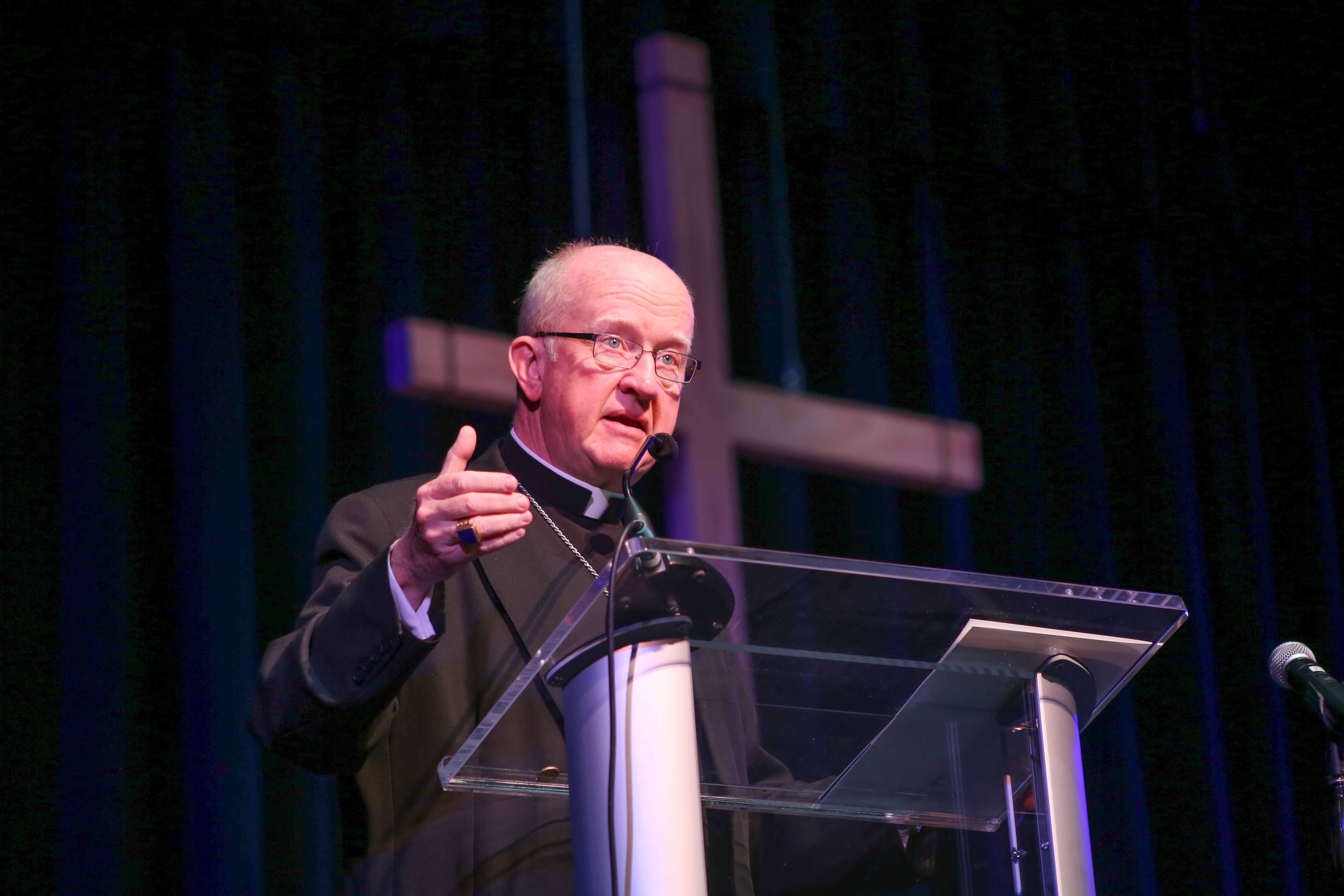It was truly a wonderful moment last month when, on behalf of our community, I was able to solemnly bless the Chapel of Unity and Reconciliation in honor of the Sisters of St. Joseph. Indeed, this chapel now stands as more than a place of reflection and meditation, it stands as a tribute to and as a thank you for the many gifts the Sisters of St. Joseph have shared with our community over the past 100 years. This beautiful space will serve as a fitting reminder to all who visit the Christ Cathedral campus of the profound love of God shared with millions through the ministries of the Sisters of St. Joseph of Orange, in service of the “dear neighbor.”
Following this beautiful celebration of the sisters’ deep commitment to the people of God, along with “final profession” and “jubilee” celebrations of their religious vows, I was very concerned to learn of an intimation or suggestion that aims to question the commitment of the sisters and their primary ministry, St. Joseph Health System, to the marginalized and vulnerable within our community and to the care of their employees and their families. Our sisters, the Sisters of St. Joseph of Orange, have always held the needs of their employees, their families and our community at the heart of their mission. The sisters integrate an inherent respect for the worker at the core of their ministries, following the example of their patron, Saint Joseph the Worker. They look to Saint Joseph as a model of generous service and of right relationships—with God, his family, and the world.
I have not only learned of this heritage of generous service and right relationships from the experience of others, but through personal experience as well. I have made “official” visits to the three hospitals of the St. Joseph Health System in Orange County, but have found this to be the case as well in personal visits to St. Jude Medical Center in Fullerton and St. Joseph Hospital in Orange. I often visit patients and friends unannounced, so there is no expectation of me showing up or any extra preparation for a visit. This is a continuation of what I learned in ministry as a parish priest , and I have seen and experienced the compassionate care for the patients and the competence of the medical and pastoral care staffs.
The Sisters of St. Joseph of Orange have a long and demonstrable history of identifying the needs of their dear neighbors and meeting those needs with compassion and love. Soon after their move from Eureka to Orange County in 1922, the sisters opened the 90-bed St. Joseph Hospital to meet the health care needs of their new community. In 1931 they purchased Fullerton General Hospital for $23,000. Knowing the aging facility would be unable to deliver high quality care, the sisters closed the facility and turned to the community for help building a new hospital. St. Jude Medical Center opened in 1957 and sisters could be found on every floor. In 1994, the sisters saw a need to have a presence in South Orange County and became the official sponsors of Mission Hospital.
Since arriving in Orange County the sisters have spread hope and love—teaching the deaf, assisting those in prison and visiting the sick in their homes. They have established countless ministries, including: the Pilgrimage Family Therapy, Casita de San Jose to care for foster children, and St. Joseph Ballet (now called the Wooden Floor) for the children of Santa Ana.
The sisters have always humbly worked spreading the love of Christ among the most vulnerable. In 1995, four sisters moved into a gang-ridden neighborhood in central Santa Ana in an effort to better understand the issues and challenges facing the marginalized within this community. From this humble beginning, Taller San Jose, an educational and job-training center in downtown Santa Ana, was born. Taller San Jose has provided thousands of young people with new opportunities and new outlooks. In 1997, the sisters opened up their own home to provide transitional housing and support services for homeless and abused women. This was the beginning of Bethany, a safe and supportive respite guiding, challenging and empowering women in transition to achieve independent living and self-sufficiency. I have been blessed and grateful to visit both of these centers of ministry since I was appointed here.
Following this tradition, today the St. Joseph Health System offers more than $400 million annually in community benefit programs—promoting health care access for children, prenatal care programs for expectant mothers, mobile clinics that provide primary care in underserved areas, and palliative and hospice care, among other important community health initiatives.
Please join me in honoring and thanking the ongoing commitment of our sisters to sharing the healing mission of Christ with the poor and vulnerable, and please pray for the many people who join our sisters in carrying out their mission within the St. Joseph Health System. Just last Sunday afternoon, when I visited St. Joseph Hospital, the words in the glass of the main entrance greeted me, as they do each and every time I visit. These words of Mother Bernard Gosselin, foundress of the Sisters, reflect the life and ministry and mission of all in the congregation and health system and related ministries: “We are willing to empty ourselves, to bend low, to wash feet, to heal wounds, all for the dear neighbor.”

